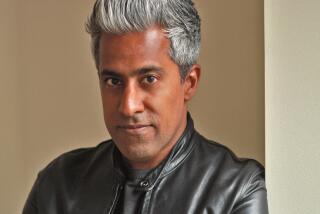Listen to Lugar
- Share via
PRECIOUS FEW POLITICIANS know how to hold their tongues, and even fewer are lambasted for doing so. But Sen. Richard G. Lugar (R-Ind.), the former Senate Foreign Relations Committee chairman, has taken fire — including on this page — for his refusal to criticize the Bush administration’s disastrous conduct of the Iraq war. Until now. In a speech that sent tremors through the White House and deserves to be widely read, Lugar last week laid out a compelling case for changing course in Iraq now, before Army Gen. David H. Petraeus reports to Congress in September, before broader U.S. interests in the Middle East are irrevocably damaged, before the American presidential campaign season makes domestic political compromise impossible and before the U.S. military itself is gravely wounded.
The media gave Lugar’s speech extensive coverage in part because of what defines news today. Conventional wisdom in Washington holds that President Bush has for the moment won a game of political chicken with the Democrats, who haven’t found a way to cut off funding for the Iraq war without succumbing to charges that they are endangering American troops. The White House will be influenced on Iraq policy only by Republicans, the thinking goes. So when a loyalist such as Lugar, who faces no political challengers and hails from one of the few states where the president is still popular, publicly breaks ranks with the president — and is joined by another GOP centrist, Sen. George V. Voinovich of Ohio — that’s news.
But that political calculus presupposes that the president can be influenced by other politicians — or by public opinion. And that’s dubious, judging from the passionate and deeply ideological speech he delivered three days after Lugar’s. Contrary to reports that the White House is looking for a compromise, Bush gave a lofty defense of his “surge” strategy and asserted that Iraqis of all ethnic stripes are joining together to fight what they now realize is a common enemy: Al Qaeda.
Would that it were so, and inshallah, as Arabs say, “if God wills.” So far, evidence of such a divine plan is lacking, while human strife multiplies: not merely Shiite versus Sunni but Shiite against Shiite, Shiite radicals against Americans, Kurds against Arabs, Sunni Iraqis in Al Anbar province against Sunni Al Qaeda supporters, criminal gangs against their powerless prey and on and on. The president’s narrative about the need for a global struggle against the terrorist evil would be more compelling were it less simplistic and Manichean.
That’s why the White House should listen to Lugar. The right will dislike his conclusion that the current strategy won’t be worth the costs and his recommendation for a troop drawdown. The left won’t like his recommendation that the U.S. leave a substantial number of troops in Iraq to protect broader Middle East interests. But Lugar’s dissent, however belated, provides a basis for sensible bipartisan discussion on Iraq — if such a civil debate can still be had.
More to Read
A cure for the common opinion
Get thought-provoking perspectives with our weekly newsletter.
You may occasionally receive promotional content from the Los Angeles Times.






